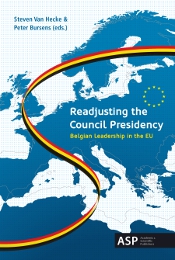The Rotating Presidency under the Lisbon Treaty: From Political Leader to Middle Manager?

The introduction of the Lisbon Treaty entailed the most fundamental changes to the rotating presidency to date. This contribution analyses the institutional framework under which the 2010 Belgian Presidency of the Council of Ministers operated. It examines the changes and tries to assess to what extent they have affected the roles, functions, and modus operandi of the Belgian Presidency.
The evolutions introduced by the Lisbon Treaty fundamentally changed the political power and agenda-setting capacity of the rotating presidency of the Council of Ministers. The latter looks more like a service provider to the European Council or middle manager now, than a source of political leadership.
Related centers and programs
Discover our other research centers and programsFind out more
Discover all our analyses
Securing critical raw material (CRM) value chains – a prerequisite for Europe’s technological resilience
At the heart of economic security, technological resilience is a backbone of the European Union’s (EU) competitiveness. The EU’s energy and digital transitions depend on critical raw materials (CRM).

Reconciling competitiveness and demographic change: a Franco-German imperative
France and Germany are facing parallel demographic shifts that could reshape the future of their economies and their social models. These shifts reflect broader European patterns but are magnified by the central role both nations play in EU governance and competitiveness.
Taking the Pulse: Does France's Political Crisis Weaken Europe's Geopolitical Hand?
While the EU tries to navigate a myriad international challenges, France is experiencing historic political disarray. What impact will instability in Paris have on Europe's geostrategic capacity?
Imaginary and Reality of the Franco-German border: a Laboratory for Europe of tomorrow
In Europe, the question of borders is a central issue. According to the European Parliament, border regions cover around 40% of the European Union (EU) territory, concentrate 30% of its population and produce nearly a third of its gross domestic product.








